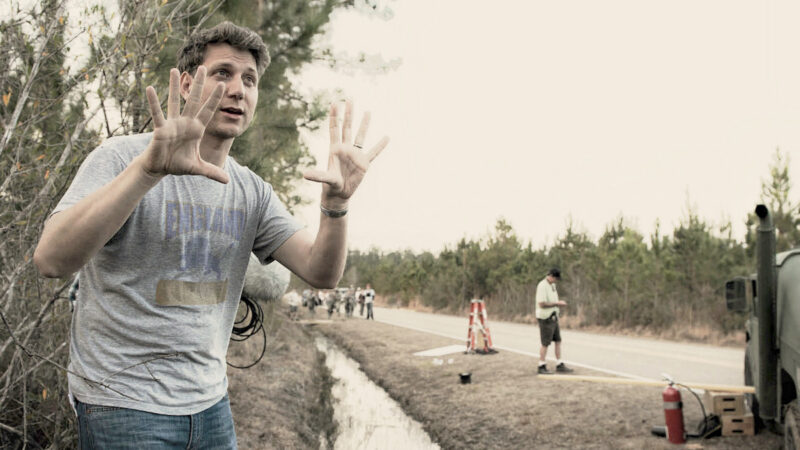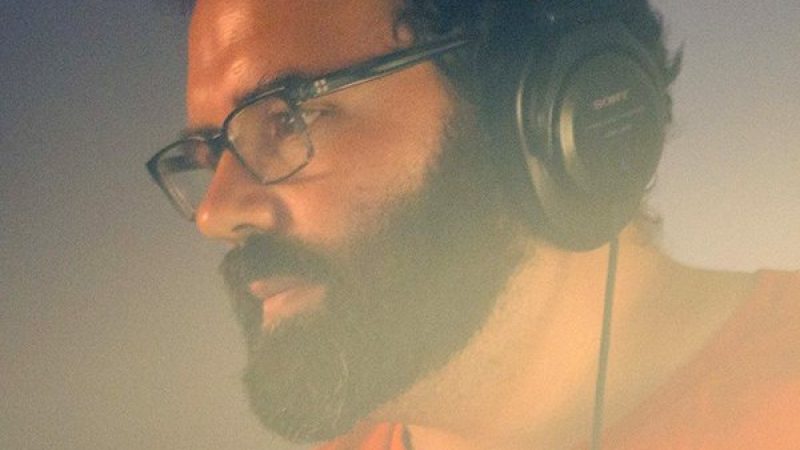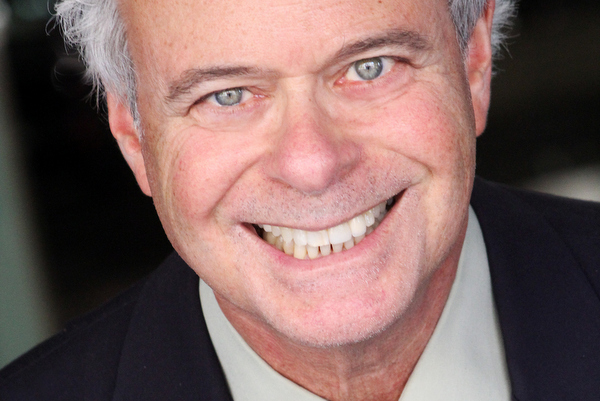
Samuel Whitehill was born in NC, raised in Lubbock, Texas, he is only child to bizarre parents. Samuel’s first taste of screen acting came in high school, when he performed an Off-the-wall Comedy role in a spoof on Don Quixote. “I loved the audience response and literally got a “high” from it. Later, when I was in my mid 20s in Austin, Texas, I starred in a couple of student films.” says Samuel Whitehill. He had hoped that one of these films would be his initiation into film and acting.
Unfortunately, the student filmmakers flubbed up on continuity, and the film died on the cutting-room floor (in a day when they actually had cutting rooms) Disappointed, Samuel Whitehill put acting aside and worked as a lawyer off and on for many years. On his IMDb page, you can find the sole surviving segment of that film: a black-and-white still shot of my drawing a six-shooter in cowboy garb (also see below).
In Dec. 2014 Samuel Whitehill and his wife left suburban Maryland for Los Angeles, to be closer to their three daughters. The idea of returning to film acting returned. After he settled in Burbank,they got to LA, Samuel joined Central Casting and started doing background work on TV and in films. Samuel started taking acting lessons in June 2015, and his adult children got him headshots for Fathers’ Day that year.
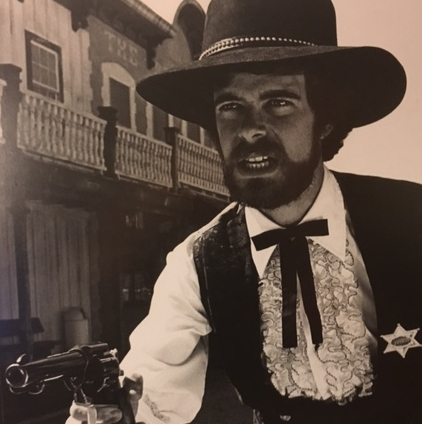
Samuel Whitehill (Photo from early years) as Rich Halliday, tourist gunfighter, UT Austin student movie circa 1976
I started subscribing to online breakdown services and began auditioning. By the end of 2015 I started getting principal roles and ceased all background work. Since then I’ve been in about 100 projects. I’m SAG eligible and have a manager, but I’m still my own agent. My children must think they’ve created a monster. I am admitted obsessed with film acting and must hold myself back from talking about it constantly.
indieactivity: What acting technique do you use?
Samuel: I adhere as much as possible to “choiceless awareness,” an approach taught at the Steve Eastin Studio in Toluca Lake and developed by the late Charles Conrad. We don’t analyze scripts. We take a somewhat Zen approach to acting. We don’t try to determine our character’s “goal.” We don’t draw up old memories from our lives. We don’t count beats. We don’t “make choices.” We don’t even pay much attention to punctuation marks.
We read the sides thoroughly and learn our lines by rote, at a monotone, and we deliver them dramatically for the first time at the audition or on the set, for the most spontaneous emotion-filled delivery possible. Each delivery is different. If the director or casting director asks me to make a major adjustment: no problem. We work under the proposition that each of us possesses the genes of everyone who has ever lived, be it Hitler or Mother Theresa.
In fact, I auditioned for the role of Hitler yesterday. Not bad for a Jewish boy. Take a look at my demo reel; each of my performances is based on this approach. I don’t “go” into character; I let the character go into me. It’s sort of like channeling. Perfect for Southern California.
indieactivity: What wrong impressions do actors hold about acting?
Samuel: Some actors think that acting requires cerebral analysis of the role. That is the approach taken in graduate school in dealing with the “text” of a literary work. That’s why I hated graduate school. When I go into an audition, I see other actors scribbling detailed notes onto the sides, or, more commonly, rehearsing the “choices” that they have made, talking and gesturing to the wall. I just sit there and breath, letting the oxygen enhance my memory and letting the adrenaline pour forth.
The “butterflies” that some actors feel shouldn’t be interpreted as “fear” but rather as “excitement.” One must go into an audition with full clarity, give the casting directors the impression that you are the answer to their quandary. Actors are mistaken to think that they can analyze their way into an emotional state or to draw up memories that are really inappropriate for the scene they are performing. If I must do a cold or cryogenic reading, I hold the sides slightly below my line of vision and swipe glances at the words as if I were simply blinking my eyes. This will yield a delivery identical with human speech.
indieactivity: Do you take courses to improve your craft?
Samuel: I study 3-3/1/2 s a week at the Steve Eastin Studio. We do cryogenic on-camera readings with a partner. By “cryogenic,” I mean cold devoid of any prior preparation, not even a cursory look-over before performing. We are trained in the mechanics of sight reading to the point that our readings are meant to appear as if we have almost memorized the lines.
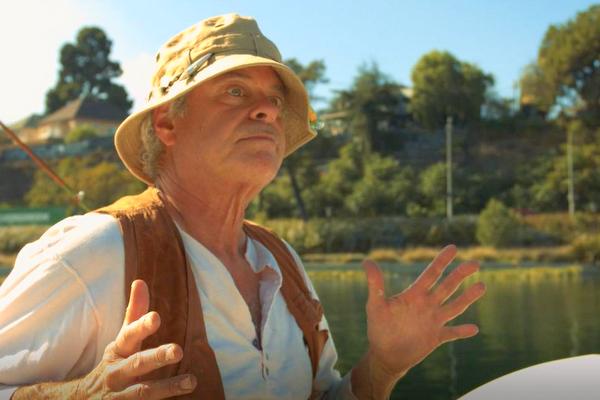
Samuel Whitehill in Pierrot le Fish
The goal is to imbue us with the self-assurance and clarity to be able to perform in any situation, be it audition or on set. We memorize those lines by learning them at a monotone and perform on camera them for the first time the following week. After the on-camera performances, we gather around a monitor to watch ourselves. Those are our only “exercises.” I’ve taken some other classes now and then, to see how other coaches approach the craft, but, frankly, Steve is a cut above them all.
indieactivity: What acting books do you read?
Samuel: I read books on the history of the cinema, because I like reading history and biography, and it’s important to be conversant about the subject. But as far as reading “how to” books on acting, I avoid them. One learns to act by doing. I have 5-10 auditions every week. That gives me the maximum practice. I’ve read articles on method acting, and they leave me cold.
indieactivity: How do you keep fit as an actor?
Samuel: My wife and I work out at the gym 3-4 days a week—weights, ab exercises. I also like to bike, walk and occasionally jog or hike. I try try to keep grounded t emotionally and spiritually through day-to-day observance of Judaism – daily prayer and meditation, Sabbath and holidays, dietary laws, prayer, and readings in the Jewish classics. I am also a published Hebrew poet, using another name as a pen name, with four books published in Israel.
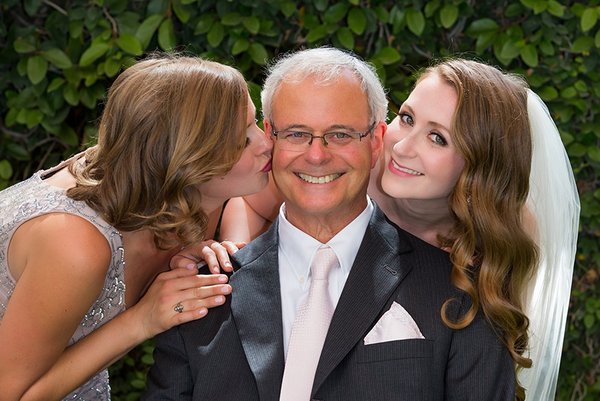
Samuel Whitehill in Father of the Bride (Photo by Curtis Dahl)
I have a chapter in an upcoming book on Hebrew writing; the chapter is entitled How Acting lessons have Made Me a Better Hebrew Poet. I guess that being a Hebrew poet has made me a better actor too. I do have on IMDb a short reel of myself performing in Hebrew—Macbeth’s soliloquy. I keep my mind fairly fit by reading world literature—poetry mainly, since I have pretensions of being a poet, along with history both ancient and modern.
indieactivity: How do you prepare for a role?
Samuel: Memorize, memorize, memorize. At a monotone, out loud, until I know the lines backwards and forwards. When I have these lines under my belt, I am free to enrich them with my own emotional involvement. If I’m performing a historical figure, I read up on the person I’m going to play, including the character’s vocabulary.
Next week, for example, I’ll be playing the antislavery activist John Brown (1800-1859), and in order to allow John Brown to inhabit me, I’ve been reading his biography so that I’ll know more about John Brown than anyone else on set, to speak as I would imagine he would have spoken. My director has, to my delight, given me the freedom to add improvised speech to the scripted lines.
indieactivity: How do you create a character from a script into a person?
Samuel: I learn my lines, so that they will come automatically and concentrate on feeling the emotion of the moment—so that those emotions will affect the audience. As I deliver these lines, I shed all self- consciousness and inhibitions that would interfere with my being that person during the performance. When I play a white bigot, I think the thoughts that I imagine a white bigot would think. I’ve also played a child molester, a wine expert, a US president, among many other roles. In each case I shed my own identity and think the thoughts of the character.
The Key Facts Behind How Jeff Nichols Made The Indie Hit MUD
Jeff Nichols gives himself directorial challenges to master on every project.
In Conversation with Michael Oblowitz Director of Confidential Informant
Confidential Informant stars Mel Gibson, Dominic Purcell, and Kate Bosworth

